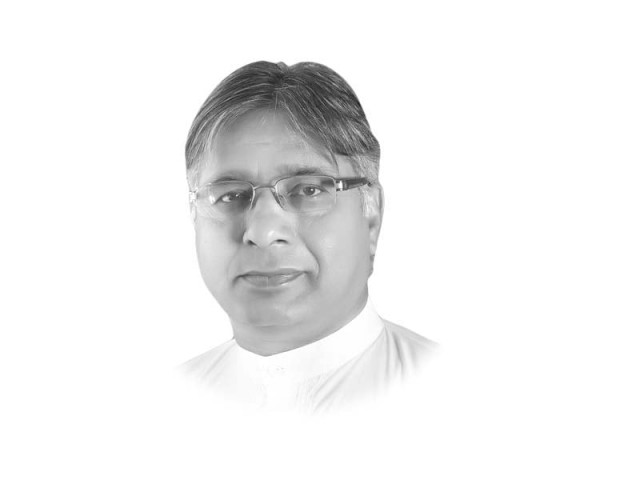Is racial discrimination an issue in Pakistan?
Pakistan was not a signatory to the International Convention on the Rights of Migrant Workers and their Family Members

The writer is a freelance journalist specialising in International law, rural development and public policy, and a director of the Centre for Social Justice
This convention is one of the core human rights treaties that the international community managed to achieve as early as 1965. Pakistan, considering itself a supporter of a world free of racial equality, became a party to the treaty without any reservations soon after it was offered voluntary ratification in 1966.
Through the Treaty Implementation committee, the federal ministries for law and justice and commerce have been leading the preparation of the Pakistan’s compliance reports since 2014 — a burden that previously rested on the foreign office.
Now that clarity has been achieved on the institutional responsibility of adherence to international commitments on human rights, the focus must be on improving the quality content of the reporting as well as achieving the recognition, protection and fulfillment of those human rights in Pakistan.
International reporting, representing Pakistan’s official narrative, has relied on denial of facts, citing normative assurances and a deflection of issues because officials and consultants preparing the reports were handicapped by the stalled progress on human rights and proper functioning of institutions. Unfortunately, the current report to the UN CERD committee hasn’t succeeded in overcoming these difficulties.
The report claims that racial discrimination is “non-existent” in Pakistan. This can be challenged on several accounts. For instance, the claim is challengeable in the consistent economic, social and political deprivation of Pakistanis of African origin (Sheedis), the diminishing rights of the Kalash people as a result of forced conversions and occupation of means of their subsistence, and the government’s inability to document nomads, gypsies and tribesmen. The report’s claim can also be challenged on account of the mass killings of minority sects.
The government’s comprehension of racism grossly ignores the pervasive ethnocentrism that creates extremely dangerous sense of ‘otherness — a cause behind interprovincial conflicts and different forms of violence. If ethnocentrism had not plagued politics and society, linguistic groups, including the Punjabis would not be complaining about their language being ignored by the state. Therefore, it is a convenient claim as long as we do not recognise racial discrimination.
Pakistan was not a signatory to the International Convention on the Rights of Migrant Workers and their Family Members. The report stated that Pakistan was not a labour-receiving country, and hence not a party to this convention. Why then, is Pakistan a party to the convention on racial discrimination, as accession to it relies on the acknowledgement that problems do exist.
Seemingly, the reporting to international treaty bodies will have to get rid of the state’s narrative, crafted to defend dictatorships that relied on the techniques of denying facts and averting all chances of accountability. Our image in the outside world cannot be starkly different than our internal reality and our relation and place among the nations will depend on the quality of improvement of internal processes.
The world has come to realise that racism is a historical as well as contemporary phenomenon. No state or society is immune to it. Therefore, there is no way forward than admitting its existence, engaging in reforms and repairing the harm through social processes. Although the Constitution of Pakistan discourages discrimination in several forms, we do not have a proper law that defines and punishes discrimination.
Racial discrimination does exist in Pakistan in several subtle as well as manifest forms, and unfortunately, in state policies as well. We can choose to turn a blind eye, but the price will be social conflict, underdevelopment and political instability.
We have to choose between continuing to live in a society fragmented on the basis of caste, colour, descent, ethnicity and language, or make efforts to ensure equality, justice and accountability through internal and external scrutiny according to international standards of human rights. The earlier choice will leave us with the status quo the on the other hand, the latter can deliver rule of law and better governance. The choice rests with us.
Published in The Express Tribune, July 21st, 2016.
Like Opinion & Editorial on Facebook, follow @ETOpEd on Twitter to receive all updates on all our daily pieces.















COMMENTS
Comments are moderated and generally will be posted if they are on-topic and not abusive.
For more information, please see our Comments FAQ